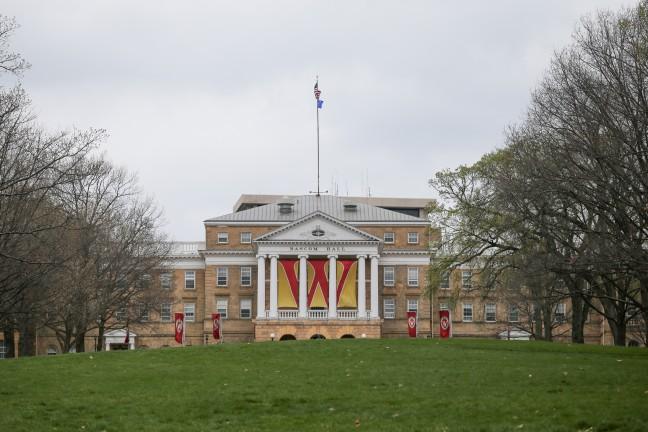A University of Wisconsin graduate school dean finalist gave a presentation on his vision for education and the intersection of research Monday.
William Karpus, professor and associate dean for student affairs at Northwestern University, is one of four finalists for the position.
“[UW is] clearly one of world’s greatest research institutions,” Karpus said. “It has a number of graduate programs that lead the world in terms of academic excellence. The opportunity to advance those and continue to have them be excellent and make everything grow in concert with the research enterprise is of interest to me.”
The graduate school dean should be an advocate for students, Karpus said.
Graduate education does not happen separately from discovery and research, Karpus said. Excellent graduate education accelerates the pace of discovery and advances the research mission, he said.
“The strength of a research intensive institution is in part determined by the figure of its graduate granting degree program,” Karpus said. “Essentially, graduate schools should really advance those academic research missions by providing the value added services.”
By engaging faculty at meetings, forming faculty councils and committees, offering visits with the school’s deans and meeting with students, the graduate program can provide the value added part of graduating school to training graduate students, Karpus said.
The graduate programs at universities fuel the research engine and provide a link between graduate school education and the research enterprise, Karpus said.
“My core philosophy in my years of training students and postdocs, and now more recently in the graduate school, is graduate students success,” Karpus said.
Success is the “production of new knowledge with respect to research enterprise,” Karpus said.
Karpus will work on increasing recruitment and retention at UW’s graduate school, he said. With a multi-parameter approach to increase access to graduate school education there will be more “voices at the table” to address problems, he said.
Through writing, dissertation “boot camps” and oral communication workshops, UW’s graduate school can provide the skill set development necessary for graduate students to consider the broad spectrum of careers, Karpus said.
“[There is a] broad spectrum of career possibilities for our graduate students,” Karpus said. “We know our graduate students are very adept at problem solving and asking the important questions for society today and developing approaches to answer those questions and produce technology.”
The remaining three finalists will give presentations later this week and next week, according to a UW statement. Beth Meyerand, professor of biomedical engineering and medical physics will present Tuesday. Brian Mitchell, dean of the National Science Foundation at Tulane University, will present Wednesday, and Gail Dubrow, dean for academic affairs at University of Minnesota Twin Cities, will present May 5.














